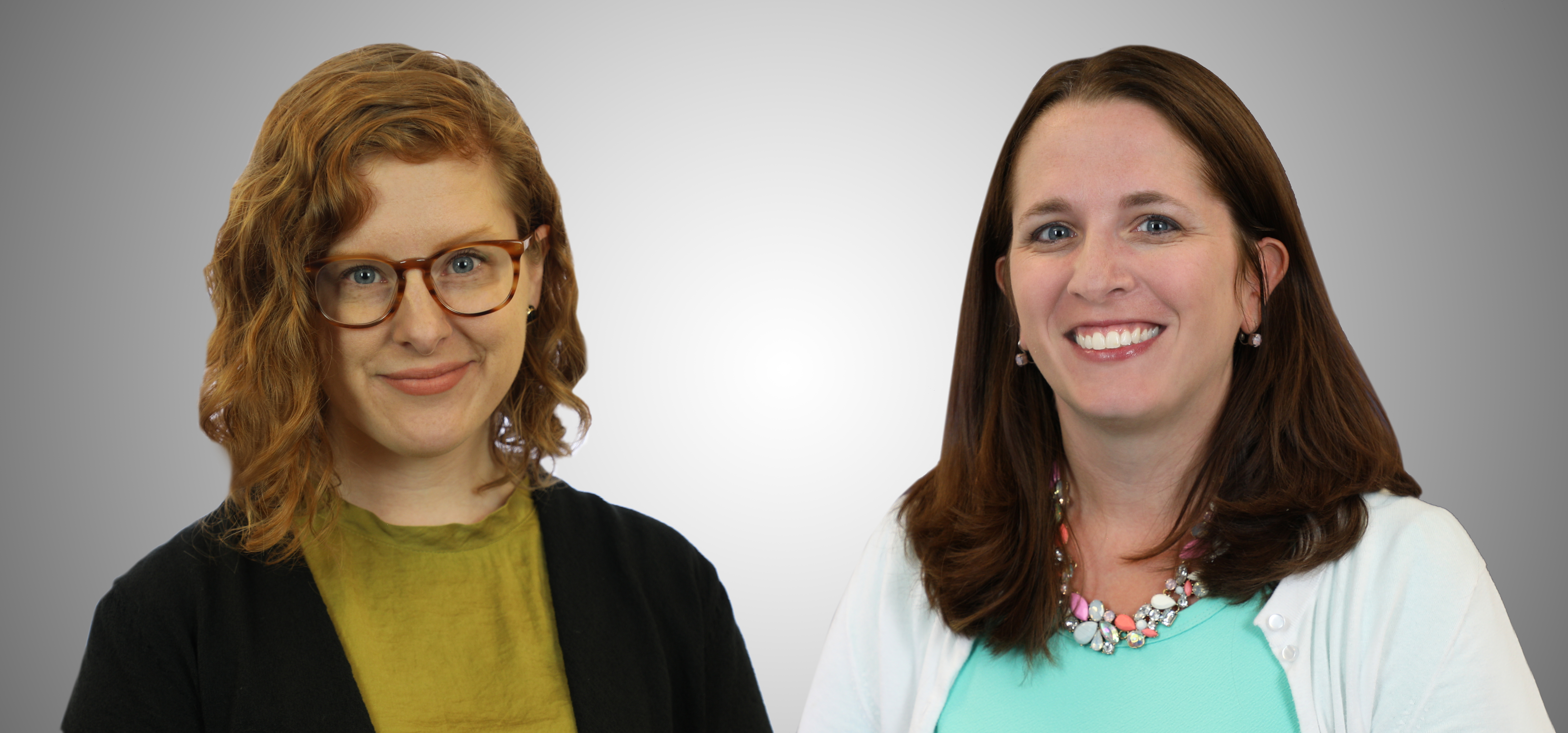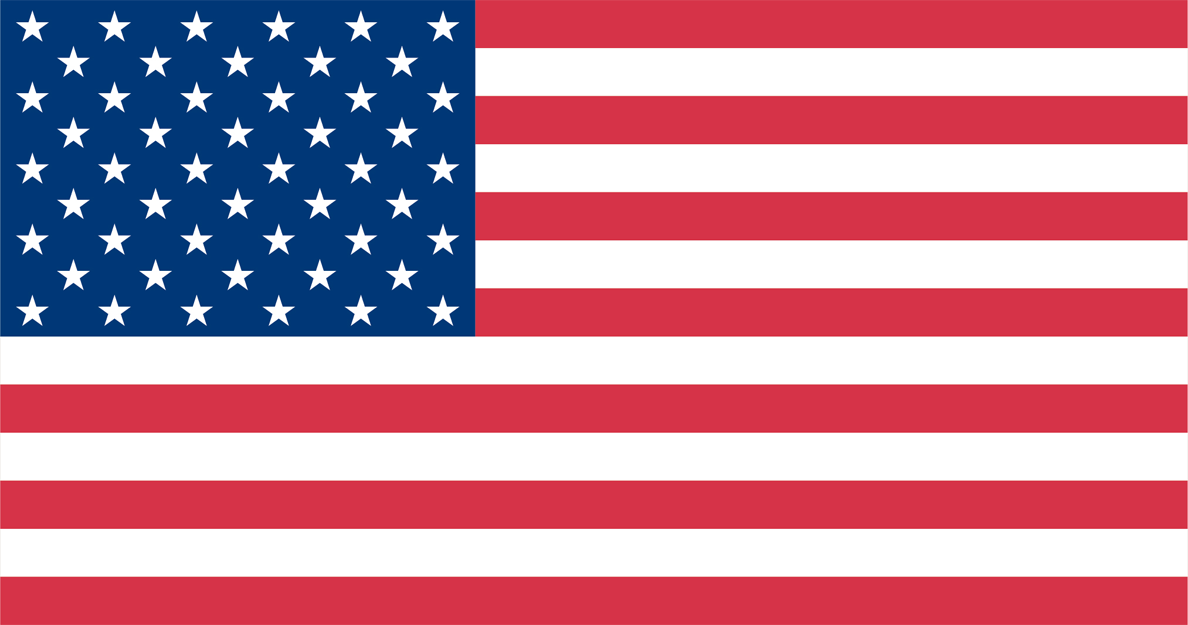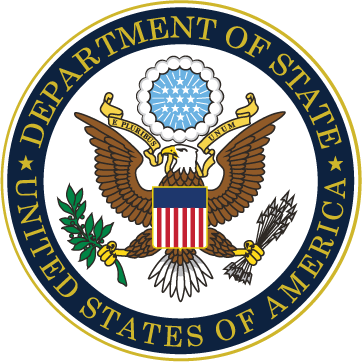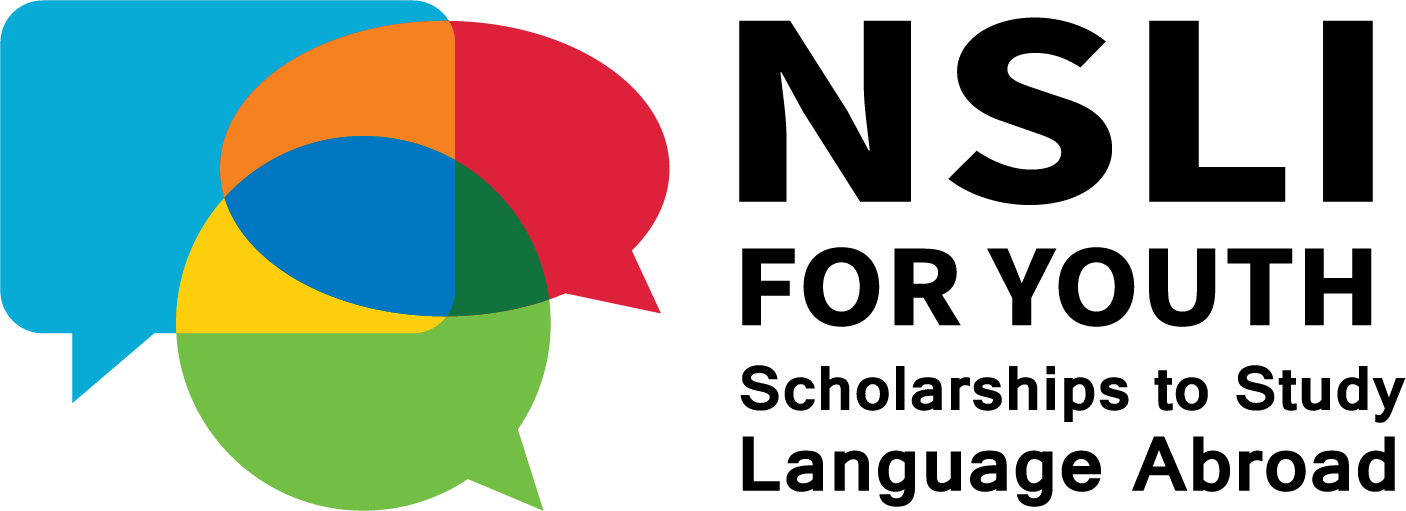Editor's note: At American Councils, we believe that exchange is for everyone, but we recognize that everyone will have a different experience while on exchange. Our staff strives to support students of all identities along the way, from recruitment to return home. We asked a few staffers this month to talk about their own experiences with exchange and the ways they work to make exchange accessible to all.
Emily Matts Henry is the program manager for the National Security Language Initiative for Youth (NSLI-Y). Anna Stewart is the program manager for the NSLI-Y placement division.
Tell us a little about your background in international education.
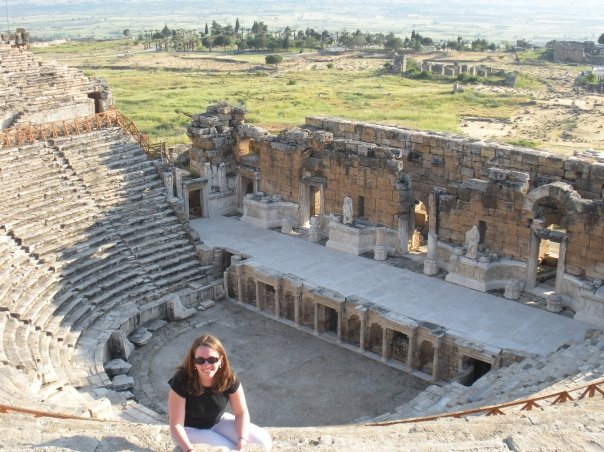
EMH: I became passionate about learning about the world from my family’s connection to our Italian heritage and the Japanese exchange student we hosted when I was 12. My parents had never traveled abroad, but I was eager to travel to Europe as a high school student. Following that experience, I wanted to pursue international affairs and study abroad in university. After my first experience studying abroad in France while in college, I felt I needed to travel to a different destination. The next year, I went on a service-learning program in El Salvador. It was less than a decade after their civil war had ended. The experience convinced me that exchanges were critical for public diplomacy and mutual understanding.
Since then, I’ve worked on the administration of the Boren Awards and Language Flagship. I have also conducted research in Turkey and received my master’s in international education. I have been managing the administration of NSLI-Y since 2012; I am so honored to work with open-minded high school students who are transformed by their experiences abroad.
AS: I grew up in Appalachia and my parents have never been abroad. Even in college, I didn’t really know many people who had been. I spent most of my time in college proud that I had made it that far and convinced that study abroad was not for students like me.
I was a double major in anthropology and dance. This sounded like an odd combination to many, but it made perfect sense to me. Art was just another form of communication. I looked at how art forms were representative of other cultures and how they were impacted by and responded to social change. I had a professor whose research focused on the anthropology of conflict and social change in South Asia and the courses I took with her really sparked my interest in India specifically.
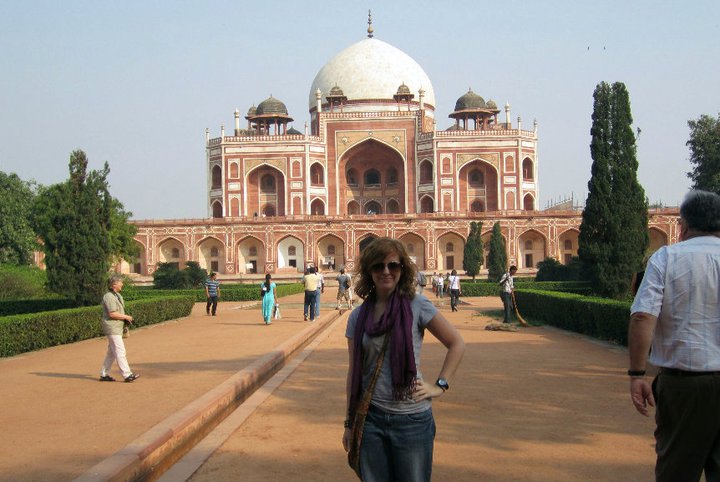
During my senior year, I sought private funding and scholarships to create my own independent study abroad experience in India. After that, I was hooked! I went on to complete two Critical Language Scholarships in India, as well as other research and work-related stints during graduate school and early on in my professional career. I was acutely aware of the challenges I faced—funding, parental and institutional support, the logistical know-how, and so on.
My graduate work was in anthropology and international development. I continuously circled back to the idea that more Americans needed to have meaningful experiences abroad that impacted the host community in a sustainable, positive, and mutually-beneficial way. I have been working on the implementation of the NSLI-Y program with American Councils since 2016 and it has been an absolute honor to work with our outstanding NSLI-Y students, their families in the US, and our partners and host communities in a number of different host countries.
Exchange can be a life changing experience, but it’s not always easy. What are some things you do to help prepare students of all backgrounds for what they might encounter?
EMH: Our NSLI-Y team tries to facilitate dialogue among our alumni and NSLI-Y applicants to help manage expectations for the program. Study abroad is challenging for all, but some students may experience more challenges than others related to their identity. NSLI-Y has encouraged all alumni, as well as our designated alumni representatives, to share their NSLI-Y experience with other students in the US. We encourage alumni to discuss how study abroad is enriching, but requires skills to overcome challenges. In addition to facilitating dialogue among alumni and applicants, we share a diversity of experiences and topics of student reflections on NSLI-Y Interactive.
We also prompt our applicants to research the host country of interest. For example, if a student has a food allergy, it may be wise to research the types of diet and common foods to learn what to expect. Researching daily life and cultural norms from a variety of sources will help a student be more prepared.
AS: The NSLI-Y team also provides materials to scholarship recipients and their parents/guardians before the start of the program that directly address some of the situational challenges students may encounter abroad related to their identity. For example: someone asking to touch your hair, making assumptions about your religious identity, or challenging your Americanness because you do not look like what someone from another country imagines the typical American to look like.
We ask all students to reflect on their own identity, including what they bring with them to the program that is unique and how that may impact their experience. As we prepare these materials and activities we consider how their experience may vary in different host countries and we also include feedback, quotes, and contributions from our alumni. Participants and their families are given the opportunity to have a call discussing any specific concerns they may have at any point during the pre-program process. Engaging participants on this topic, through interactive activities and discussions, continues through pre-departure orientation and throughout their program in the host country.
It is also important that students have a solid support network to help them through these challenges while in their host country. NSLI-Y programs are group-based and led by a resident director or local coordinator. As such, the NSLI-Y team also focuses on training staff and helping participants develop the skills to be a good peer—someone that listens, empathizes, and supports others on the program through these challenges. Fostering a positive, inclusive, and supportive group dynamic can be just as impactful on a student’s experience as is providing solid language instruction.
Why do you think it’s important that the students studying abroad reflect the diversity of America?
AS: When the population of students studying abroad reflects the diversity of America, everyone benefits. Not only do those in the host country have the chance to learn about the diverse experiences and identities of America, but the students on the program have a lot to learn about each other. Their experience abroad may help them better understand their own identity and also learn more about Americans from other parts of the country that they would not otherwise have the opportunity to interact with. Every day they have the opportunity to break down stereotypes amongst those they meet in their host country and those they interact with inside of their program. The diverse narratives of American high school students and host country nationals can resonate with staff, host family neighbors, teachers, and natural parents/guardians in the US long after the program finishes.
EMH: NSLI-Y supports overseas immersion programs for over 600 young Americans every year. Our diverse participant groups showcase the many facets of American culture and geography abroad. We work to ensure that NSLI-Y participants are aware that they may be the only American that someone in their host community may encounter. In these opportunities, given that the US populace is so varied, I think it’s important to show the unique diversity in our culture and that not all Americans look like the ones in movies. Further, I trust that our NSLI-Y participants show that diversity is celebrated and appreciated as a value in the United States. Finally, study abroad, especially at the high school level, helps students refine career and academic goals, as well as build 21 century skills. Such skills are needed across all industries and this type of learning opportunity should be accessible and inclusive to support career readiness and our national security.
Can you talk about a time you helped a student on program overcome a challenge?
EMH: I remember speaking with a NSLI-Y finalist and parent about studying in China. This finalist had studied Chinese for a few years and traveled briefly with family in Europe. This student was eager to study Chinese in an immersion environment for the first time; we spent a lot of time discussing local conditions in her host city since she had significant vision loss. We discussed cultural differences in China, logistics of commuting to class, and the classroom environment. While the student had traveled internationally before, the context in China was different. We arranged for accommodations for her commute and took other steps to prepare. She had a very successful summer abroad and made tremendous progress in her Chinese proficiency!
About the Authors
Anna Stewart is the program manager for the NSLI-Y placement division at American Councils for International Education, where she supports students and implements a number of NSLI-Y program sites across eight countries. Ms. Stewart began studying Hindi in India during college and later completed the Critical Language Scholarship program twice in graduate school. Since then, she has worked on language and study abroad programs across Asia and the Middle East for both secondary schools and higher education.
Emily Matts Henry is the program manager for NSLI-Y at American Councils for International Education, and she feels fortunate to observe NSLI-Y students "in action" overseas in six countries. Ms. Matts Henry first experienced the impact of study abroad as a means of public diplomacy through her studies in France, El Salvador, and Turkey. She holds a bachelor’s degree in international affairs and political science and a master’s degree in international education. Her nearly 15 year career has focused on US government funded programs to support critical languages overseas.

